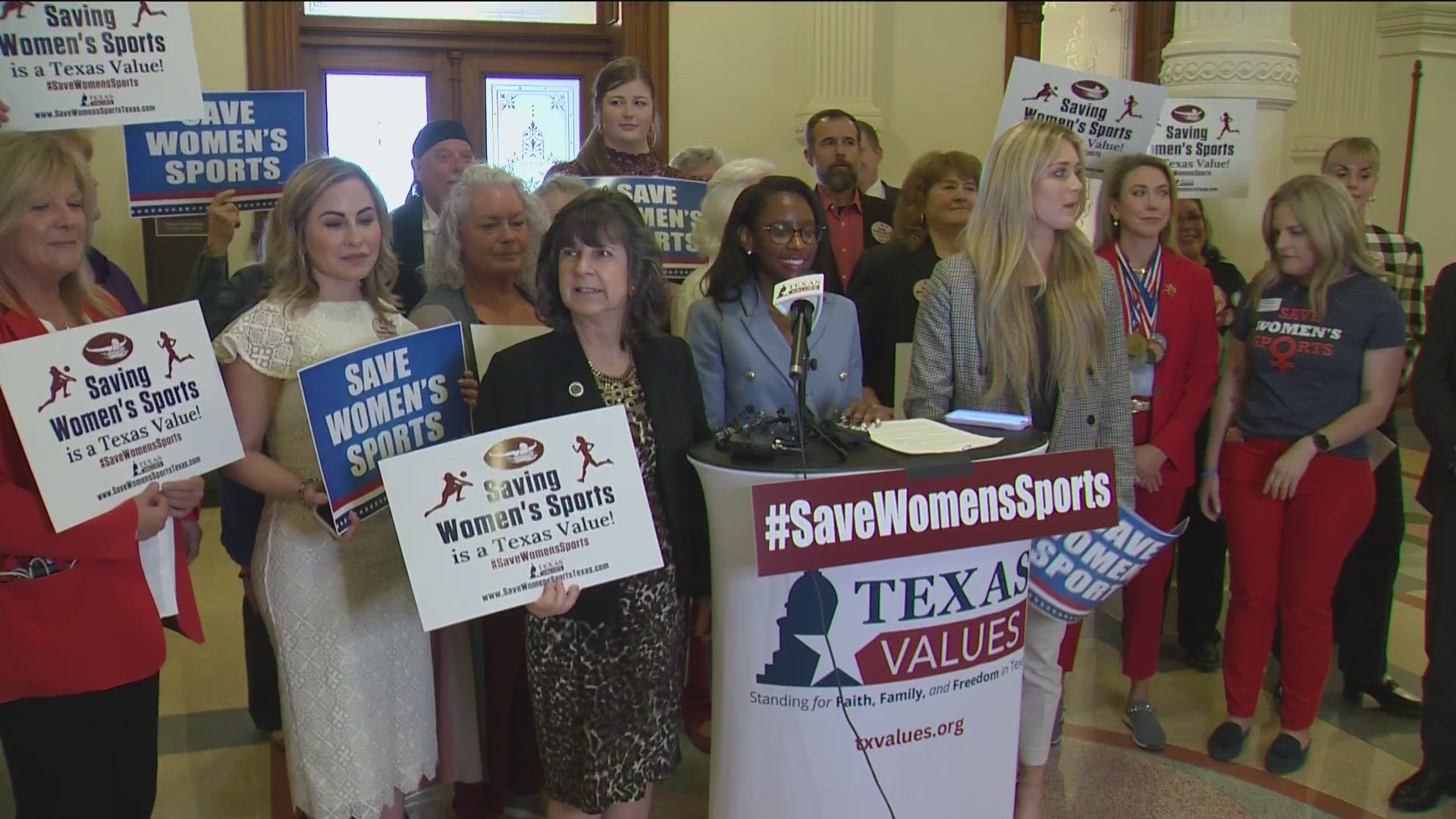Powell's 'Save Women's Sports Act' Passes House Committee: A Critical Examination of Complexities
Introduction
The "Save Women's Sports Act," sponsored by Representative Greg Steube (R-Fla.), recently passed the House Committee on Education and Labor. The bill aims to protect the integrity of women's sports by requiring individuals to compete in sports based on their sex assigned at birth. However, this legislation has sparked controversy and complex debates surrounding biological advantages, transgender rights, and fairness in competition.
Biological Advantages
Proponents of the "Save Women's Sports Act" argue that biological differences between sexes confer advantages in sports. They cite research indicating that males generally have greater muscle mass, lung capacity, and bone density, potentially providing an unfair advantage in athletic competitions.
For example, a study published in the journal Sports Medicine found that even after testosterone suppression, transgender women retained a significant advantage over cisgender women in running and swimming events.
Transgender Rights
Opponents of the bill emphasize the importance of protecting the rights of transgender individuals. They contend that excluding transgender women from female sports is discriminatory and denies them the opportunity to participate in activities that align with their gender identity.
Additionally, they argue that the focus on biological advantages overlooks the diversity within both sexes and fails to consider the individual circumstances of transgender athletes.
Fairness in Competition
The debate also revolves around the principle of fairness in competition. Supporters of the bill maintain that allowing transgender women to compete in women's sports could undermine the integrity of the competition, especially in situations where biological advantages may play a significant role.
Conversely, critics argue that excluding transgender athletes based on their sex assigned at birth is unfair to individuals who have undergone gender-affirming care and identify as female. They emphasize the importance of creating inclusive and equitable sports environments.
Legal Implications
The "Save Women's Sports Act" touches upon complex legal issues. The bill has the potential to challenge existing Title IX protections against discrimination based on sex. It also raises questions about the scope of federal authority in regulating sports at the local and state levels.
Legal experts predict that if enacted into law, the bill could face legal challenges based on constitutional grounds and the Equal Protection Clause.
International Perspective
The debate surrounding transgender inclusion in sports is not unique to the United States. Many countries around the world have adopted different approaches to this issue.
| Country | Approach |
|---|---|
| Canada | Allows transgender women to compete in women's sports if they have undergone testosterone suppression |
| United Kingdom | Has a case-by-case approach, considering factors such as physical characteristics and previous athletic performance |
| International Olympic Committee | Permits transgender athletes to compete if their testosterone levels are below a certain threshold |
Conclusion
The "Save Women's Sports Act" has ignited a complex and multifaceted debate that pits biological advantages against transgender rights and fairness in competition. The bill has far-reaching implications for the future of women's sports and the rights of transgender individuals.
As the legislation moves through the legislative process, it is essential to engage in thoughtful and respectful discussions that balance the need for inclusion with the preservation of fair competition. It is also crucial to consider the individual circumstances of transgender athletes and ensure that policies are grounded in evidence and respect fundamental rights.
The broader implications of this debate extend beyond the world of sports. It challenges us to confront societal biases and assumptions surrounding sex, gender, and athleticism. By fostering inclusive environments and engaging in open dialogue, we can strive towards a more just and equitable society for all.
Read also:
Knicks Prepare For Western Test In Pivotal Homestand
Nebraskans Mourn Beloved Leader Jack Hoffman, Expressing Heartfelt Grief
Jimmy Fallon's 2025 Career Trajectory: A Bold Leap Into Uncharted Territory

